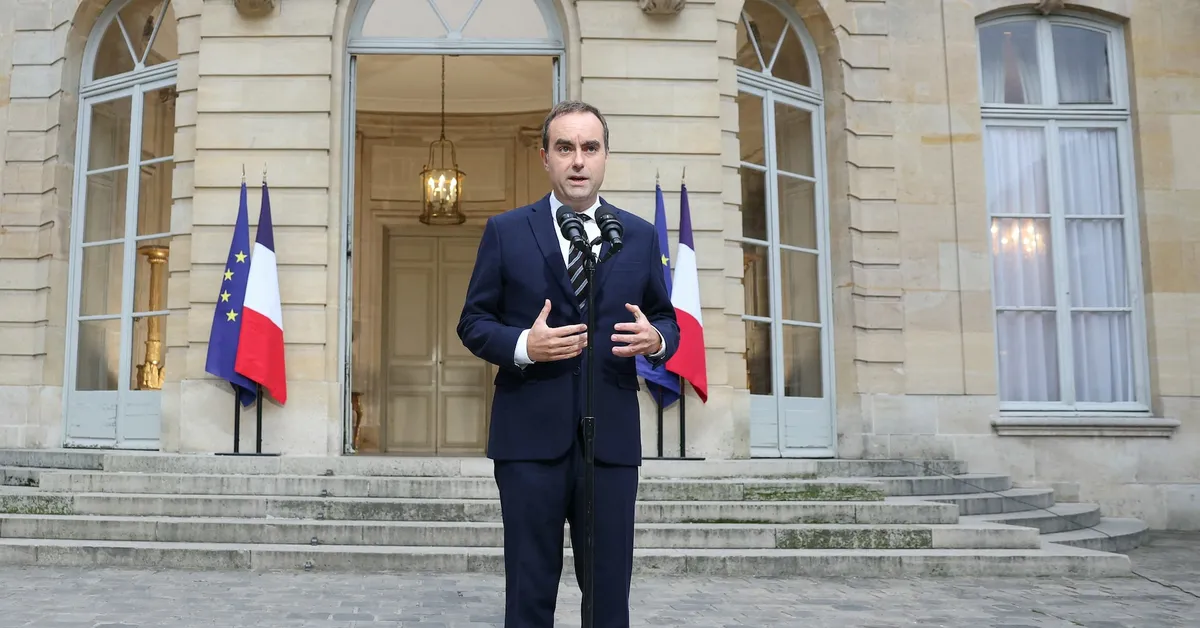
PARIS, Oct 6 (Reuters) - In a shocking turn of events, France's new Prime Minister Sebastien Lecornu and his government resigned on Monday, just hours after announcing his cabinet line-up. This unprecedented resignation marks the shortest-lived administration in modern French history, resulting in a significant drop in both stocks and the euro.
The swift resignation was largely unexpected, intensifying the ongoing political crisis in France. It followed threats from both allies and adversaries to dissolve the new government. Lecornu's tenure lasted a mere 27 days, with his cabinet in place for only 14 hours before he submitted his resignation.
The far-right National Rally wasted no time in urging President Emmanuel Macron to call a snap parliamentary election. Meanwhile, the hard-left party France Unbowed insisted that Macron must resign as well. The political landscape in France has become increasingly volatile since Macron's re-election in 2022, largely due to the lack of a dominant party or coalition in parliament.
After extensive discussions with multiple political factions, Lecornu, a close ally of Macron, unveiled his cabinet on Sunday. However, the new line-up polarized opinions, with critics claiming it was either too right-wing or not sufficiently so. This division raised serious concerns about the sustainability of the government, especially given the absence of a majority in the fragmented parliament.
On Monday morning, Lecornu officially handed his resignation to Macron, a move confirmed by the Elysee's press office. The resignation reflects the increasing instability within French politics, a situation exacerbated by Macron's previous decision to hold a snap parliamentary election last year, which resulted in a more fragmented legislative assembly.
National Rally leader Jordan Bardella emphasized that without a return to the polls and the dissolution of the National Assembly, stability in France would remain elusive. Mathilde Panot from France Unbowed remarked on the rapid turnover of prime ministers, stating, “Lecornu resigns. Three Prime Ministers defeated in less than a year. The countdown has begun. Macron must go.”
In the wake of the political upheaval, the euro fell by 0.7% on the day, trading at $1.1665. The market reaction underscores the growing concern over France's political stability, as investors grapple with the implications of a government that is struggling to maintain cohesion.
France has rarely faced a political crisis of this magnitude since the establishment of the Fifth Republic in 1958. The constitution was designed to ensure stable governance by creating a powerful presidency with a strong parliamentary majority, aimed at preventing the instability experienced before and after World War Two. However, Macron's rise to power in 2017 has led to a fragmented political landscape where no single entity holds sway, complicating governance and coalition-building.
Reporting by Elizabeth Pineau, Benoit Van Overstraeten, Michel Rose, Sudip Kar-Gupta, and Inti Landauro; Writing by Ingrid Melander; Editing by Gareth Jones.